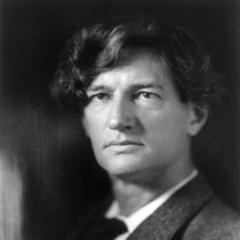William Shenstone Quotes - Page 3
Prudent men lock up their motives, letting familiars have a key to their hearts, as to their garden.
William Shenstone (1804). “Essays on Men and Manners”, p.43
William Shenstone (1804). “Essays on Men and Manners”, p.42
William Shenstone (1764). “The Works in Verse and Prose, of William Shenstone, Esq;: Essays on men, manners, and things. A description of The Leasowes, the seat of the late William Shenstone, Esq. Verses to Mr. Shenstone”, p.212
William Shenstone, “Elegy Xi. He Complains How Soon The Pleasing Novelty Of Life Is Over”
Learning, like money, may be of so base a coin as to be utterly void of use.
William Shenstone (1768). “The Works, in Verse and Prose, of William Shenstone, Esq: In Two Volumes. With Decorations”, p.237
The fund of sensible discourse is limited; that of jest and badinerie is infinite.
William Shenstone (1804). “Essays on Men and Manners”, p.176
William Shenstone (1804). “Essays on Men and Manners”, p.152
William Shenstone (1868). “Essays on men and manners”, p.150
Oliver Goldsmith, Tobias Smollett, Samuel Johnson, William Shenstone (1861). “Poetical Works of Oliver Goldsmith, Tobias Smollett, Samuel Johnson and William Shenstone”, p.103
William Shenstone (1804). “Essays on Men and Manners”, p.165
William Shenstone (1764). “The Works in Verse and Prose, of William Shenstone, Esq: Most of which Were Never Before Printed ...”, p.210
William Shenstone (1804). “Essays on Men and Manners”, p.142
Second thoughts oftentimes are the very worst of all thoughts.
William Shenstone (1804). “Essays on Men and Manners”, p.166
There is a certain flimsiness of poetry which seems expedient in a song.
William Shenstone (1868). “Essays on Men and Manners”, p.179
William Shenstone (1804). “Essays on Men and Manners”, p.127
William Shenstone (1804). “Essays on Men and Manners”, p.122
William Shenstone (1764). “The Works in Verse and Prose, of William Shenstone, Esq: Most of which Were Never Before Printed ...”, p.176
William Shenstone (1804). “Essays on Men and Manners”, p.141
'Written at an Inn at Henley' (1758).
A man has generally the good or ill qualities which he attributes to mankind.
William Shenstone (1804). “Essays on Men and Manners”, p.143
William Shenstone (1765). “The works in verse and prose, of William Shenstone, esq: in two volumes”, p.196







